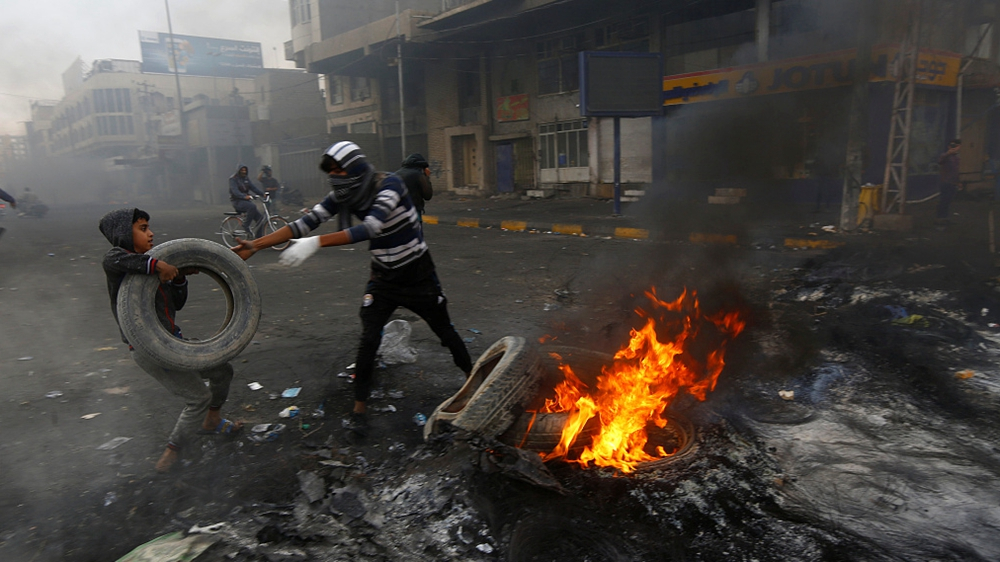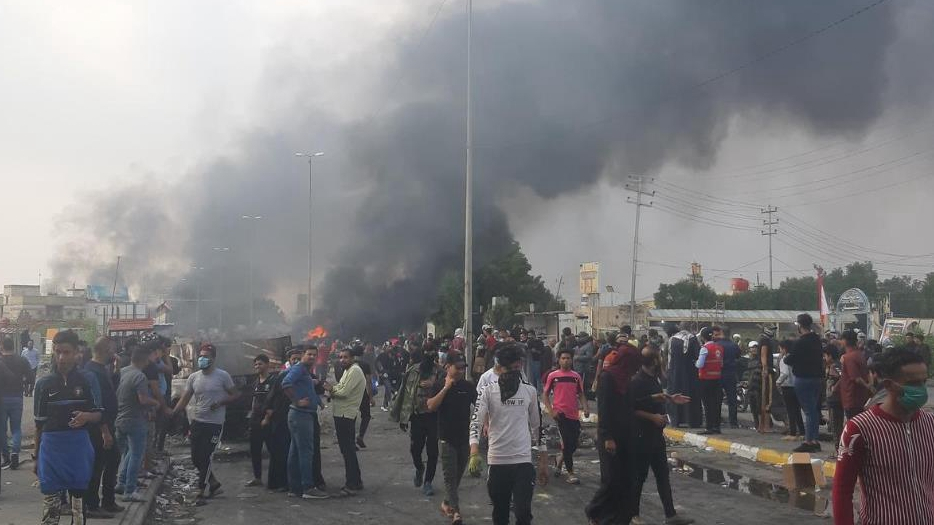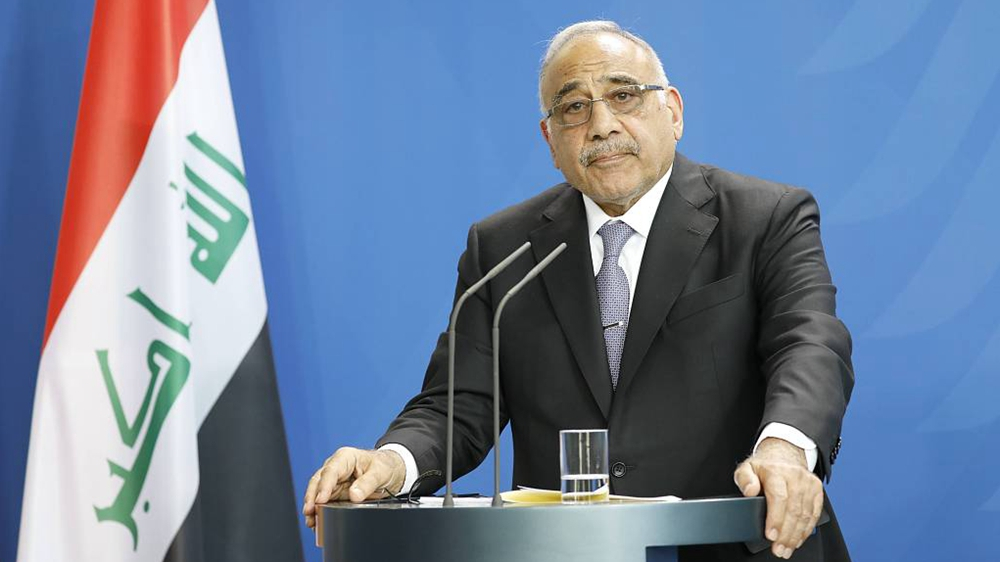
Iraqi demonstrators burn tires to block a street during ongoing anti-government protests in Najaf, November 28, 2019. /VCG Photo
Iraqi demonstrators burn tires to block a street during ongoing anti-government protests in Najaf, November 28, 2019. /VCG Photo
Iraqi protesters set fire to the entrance of a shrine in the southern holy city of Najaf on Saturday and security forces fired tear gas to disperse them, police at the scene said, risking more bloodshed after a rare day of calm.
The incident took place during one of the bloodiest weeks of Iraq's anti-government unrest, which erupted last month. On Friday, Prime Minister Adel Abdul Mahdi promised to quit to try to stem the violence and public anger.
Demonstrations continued elsewhere including the southern city of Nassiriya where protesters earlier surrounded a police station and in Baghdad. But there were far fewer reports of casualties than on the previous two days, when scores were killed nationwide in the Iraqi capital and the south in clashes with security forces.
Abdul Mahdi's resignation announcement came hours after a call from Iraq's top Shi'ite Muslim cleric for the government to step down to end the unrest. The burning on Wednesday of the Iranian consulate in Najaf deepened the crisis.

Smoke rises from burning vehicles of Iraqi security forces after clashes with protesters in Nassiriya, November 29, 2019. /Reuters Photo
Smoke rises from burning vehicles of Iraqi security forces after clashes with protesters in Nassiriya, November 29, 2019. /Reuters Photo
The unrest, which has killed more than 400 people, mostly demonstrators, amounts to the biggest challenge for Iraq since ISIL insurgents seized vast swathes of Iraqi and Syrian territory in 2014.
Security forces have used live ammunition, tear gas and stun grenades against protesters for nearly two months. Scores of the more than 400 dead have been killed in recent days, particularly in the southern cities of Nassiriya and Najaf.
Iraq's cabinet approved Abdul Mahdi's resignation, his office said in a statement on Saturday, but parliament has yet to withdraw its support for the prime minister at a session on Sunday, making it official.
"The government has done all it can to respond to the demands of protesters and enact reforms... and calls the parliament to find solutions (to unrest) in its coming session," the statement said.

Iraqi Prime Minister Abdul Mahdi attends a press conference during his visit to Germany in Berlin, April 30, 2019. /VCG Photo
Iraqi Prime Minister Abdul Mahdi attends a press conference during his visit to Germany in Berlin, April 30, 2019. /VCG Photo
Abdul Mahdi's government, including himself, will stay on in a caretaker capacity following the lawmakers' vote until a new government can be chosen, the prime minister said later on Saturday.
He added that President Barham Salih would then need to name a new premier for approval by parliament.
Iraqi protesters have welcomed the resignation but say it is not enough. They demand the overhaul of a political system they say is corrupt and keeps them in poverty and without opportunity.
Weeks of political wrangling are expected before a successor to Abdul Mahdi is picked and a new government formed.
The International Committee of the Red Cross urged a halt to rising casualties. "Firearms and live ammunition must only be used as a last resort," it said in a statement.
(With input from Reuters)